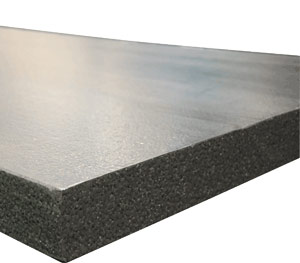In Business Since | License #
In Business Since | License #


Unlike fiberglass insulation, rigid foam resists compression (which diminishes R-value), can't be damaged by moisture, and can form an air barrier to provide additional energy savings.
The basement plays a major role in a home's overall energy efficiency and comfort. Whether you use your basement on a regular basis or just visit this space occasionally to store and retrieve different items, it's smart to make this part of the house as energy efficient as possible.
The two main strategies for improving energy efficiency in the basement are air sealing and upgrading basement insulation. The purpose of basement air sealing is to seal the leaks around the perimeter of the foundation where a great deal of outside air can enter the basement space. If the basement has an exterior door, this is also a major air-sealing "target."
Dr. Energy Saver has the experience needed to fix these key areas of basement inefficiency. Contact your local dealer to have a tried-and-tested energy expert inspect your home for basement insulation needs!
The purpose of basement insulation depends on where the insulation is installed. In the past, many builders insulated the basement by installing fiberglass batt insulation between the ceiling joists in the basement. Unfortunately, this approach doesn't actually insulate the basement; it insulates the living space above the basement.
When fiberglass insulation is installed between basement ceiling joists, the basement itself is technically outside the home's "building envelope," the thermal boundary between interior and exterior conditions.
By insulating basement walls instead of the basement ceiling, the basement space is brought inside the home's building envelope. The basement becomes part of the building's conditioned space, which means that it will be more comfortable. Basement wall insulation also protects hot water lines and HVAC ductwork in the basement from cold winter temperatures that compromise the performance of your hot water and heating systems.
Basement walls can be insulated by installing rigid foam insulation board against the exterior face of foundation walls. However, it's more common to install this rigid foam insulation from inside the basement.
Dr. Energy Saver will perfectly employ the products needed to insulate your basement wall. Call your local contractor or click below to get started today!
Looking for a price? Get a no cost, no obligation free estimate.